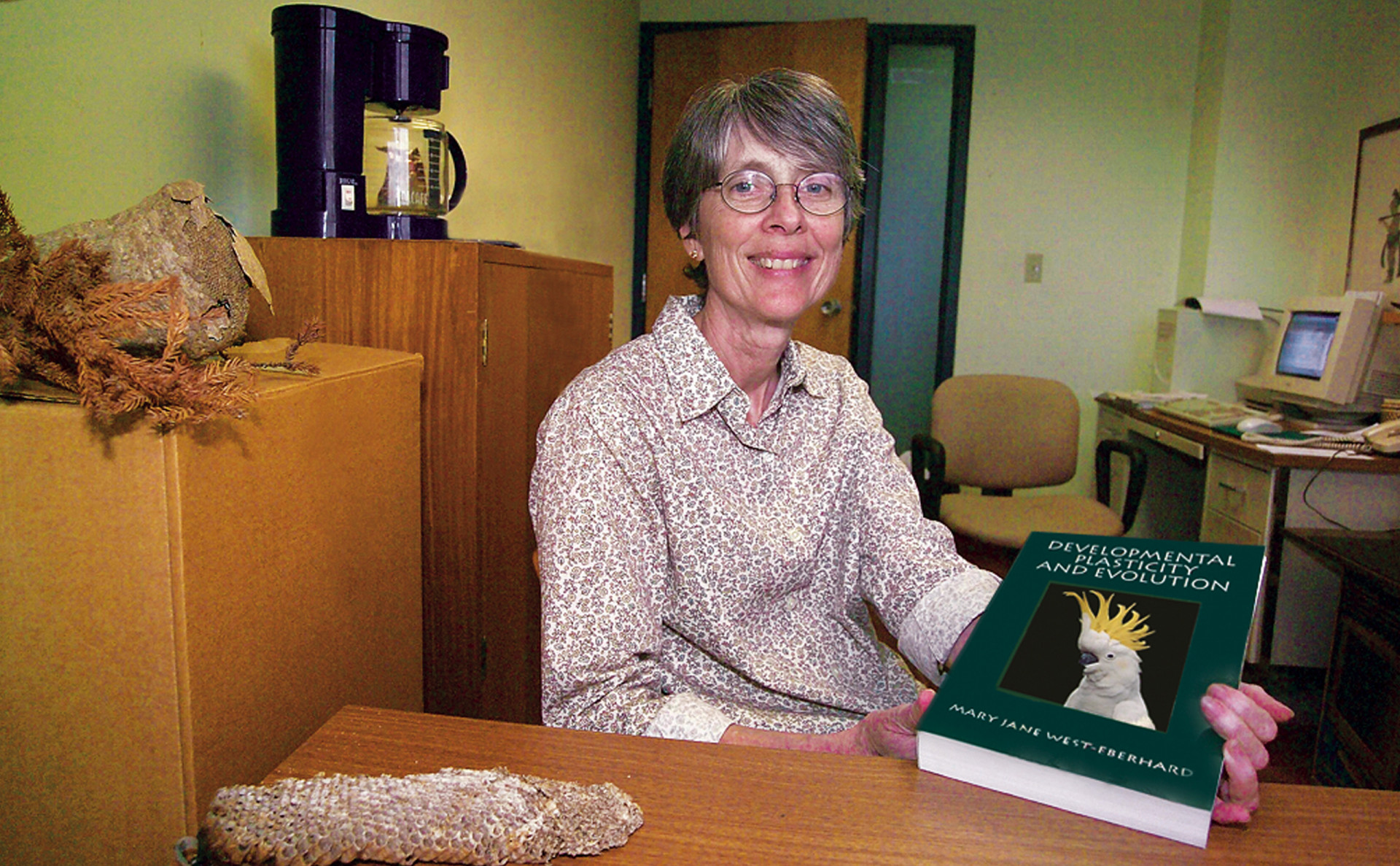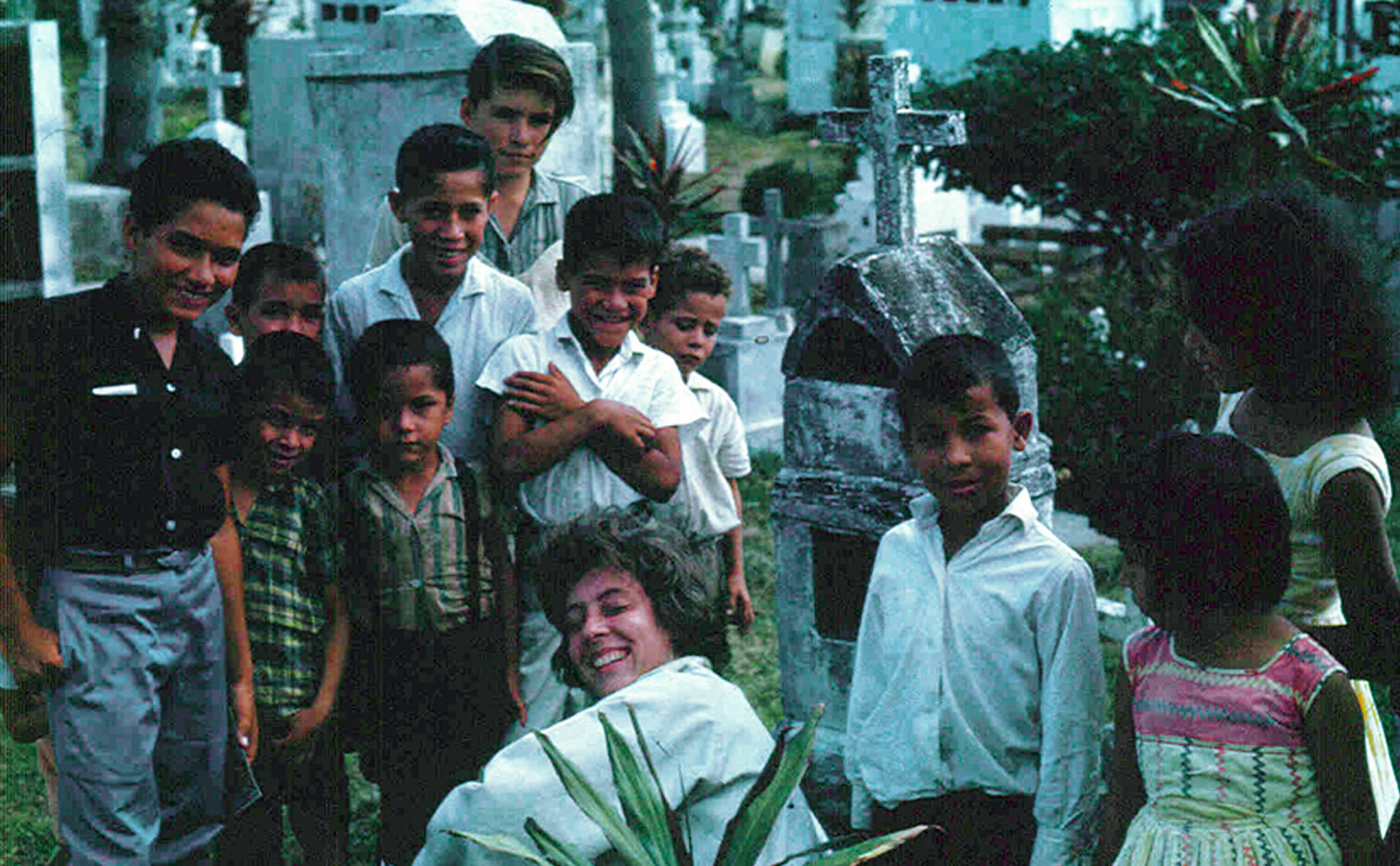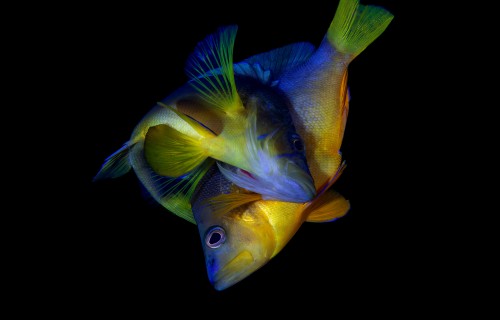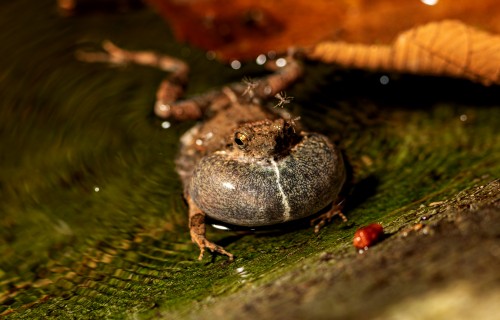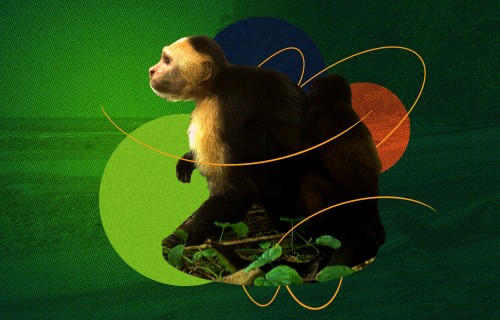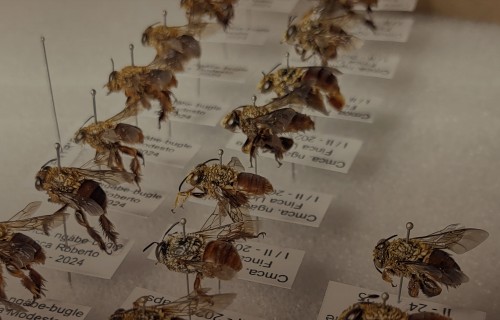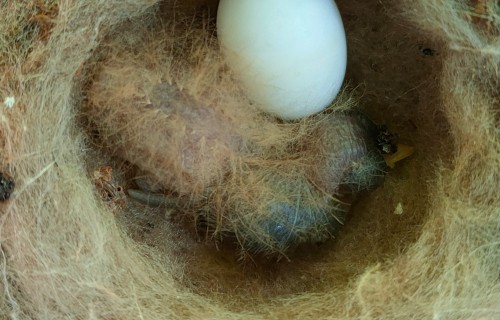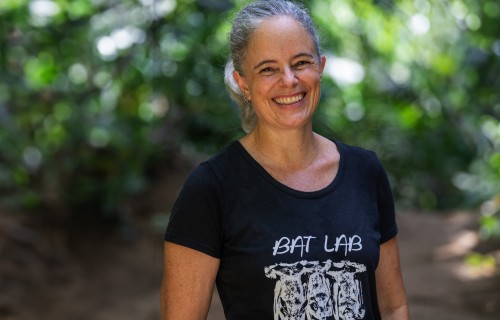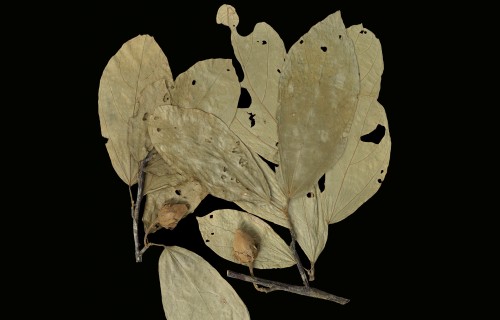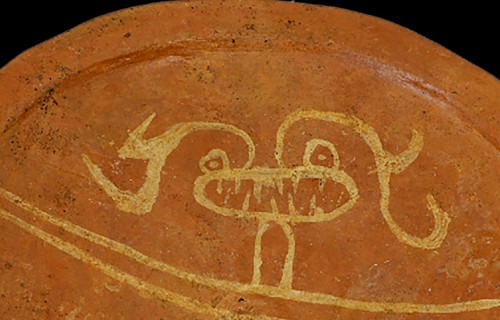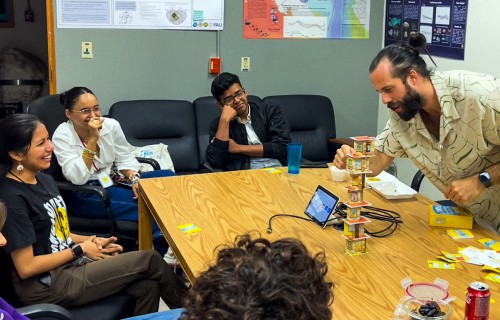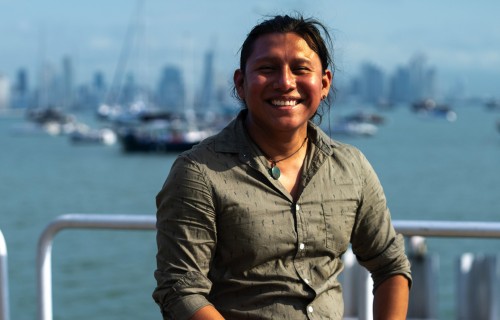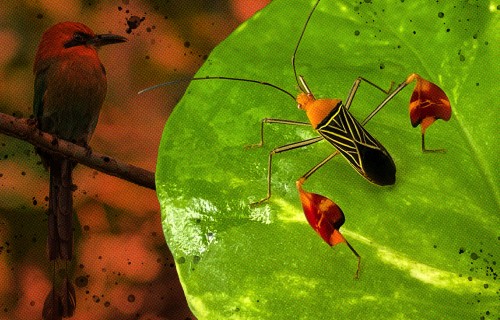A comparison of colorful hamlets
from the Caribbean challenges ideas
about how species arise
An
Evo-Devo
Pioneer
Mary Jane
West-Eberhard
retires
Panama City, Panama
After a half century of pioneering research on evolutionary developmental biology and induction into the National Academy of Sciences, a long-time Smithsonian scientist retires.
In 1965, Mary Jane West-Eberhard flew in a plane for the first time — from the United States, where she was working on her doctorate at the University of Michigan, to Cali, Colombia, where she would spend five months studying wasp behavior.
At the time, the only scientific information about tropical wasps was a book published in 1933 by Phil Rau, who did his fieldwork on Barro Colorado Island.
In 1973, Martin Moynihan, then the director of the Smithsonian Tropical Research Institute, invited Mary Jane and her husband Bill Eberhard to give seminars in Panama. This led to a part-time job and, in 1986, appointment to STRI’s scientific staff.
Driven by curiosity, Mary Jane has always focused on the little things. “The trick is to start with the specifics — a single wasp species or a biological process that doesn’t seem especially significant — and to arrive at much more general interpretations of nature. I asked why organisms live in societies. It doesn’t matter if they’re insects, elephants or human beings,” West Eberhard said.
Weighing evolutionary theory against the exquisite details of wasp societies, led her to write her magnum opus, Developmental Plasticity and Evolution published in 2003, an 816-page tome lauded by critics who compare its thoroughness to Darwin’s On the Origin of Species.
“In my book I show that the ability of organisms to respond to their surroundings—to changes in temperature, in season, in the availability of food or to attacks by predators or disease affects their development and their evolution.”
In honor of her work, Mary Jane was invited to join the prestigious American Academy of Arts and Sciences and the United States National Academy of Sciences, serving as vice-chair of its Committee on Human Rights. In 2005, she joined the world’s oldest scientific society, the Italian Accademia Nazionale dei Lincei. At STRI, Mary Jane established the Adelante fellowship program, actively promoting the careers of young scientists working in Latin America.

